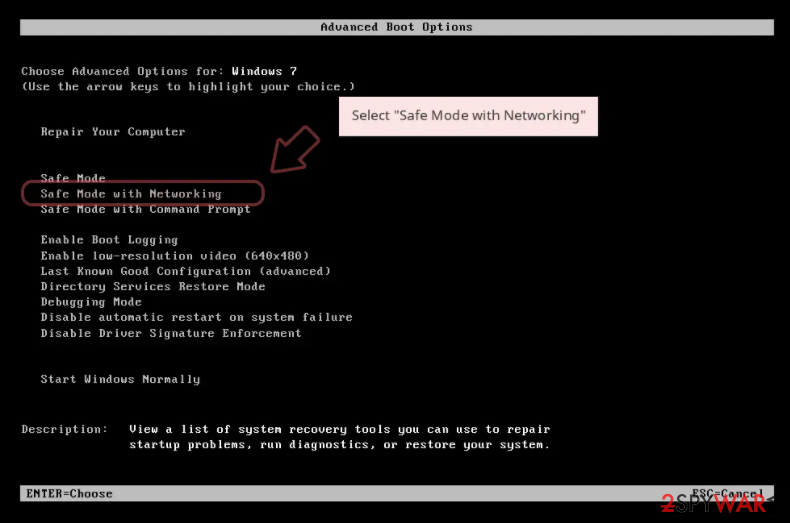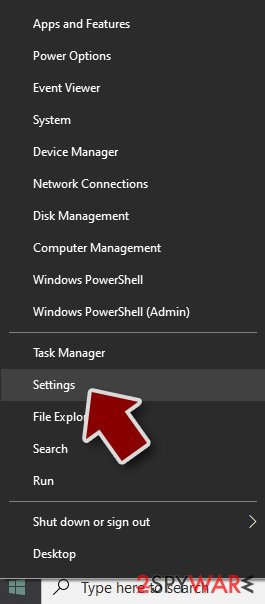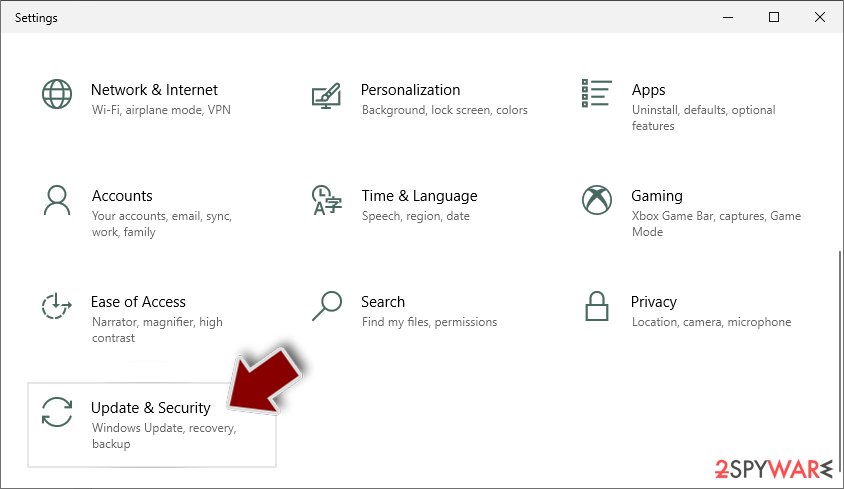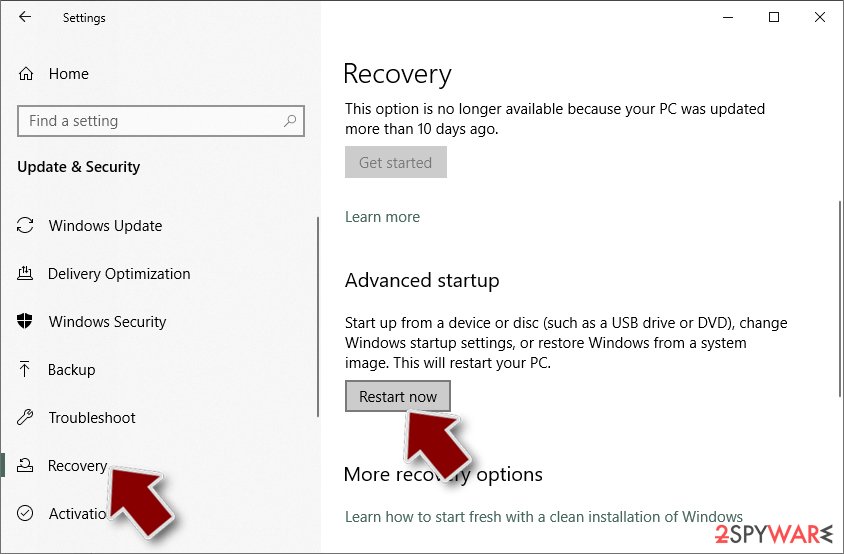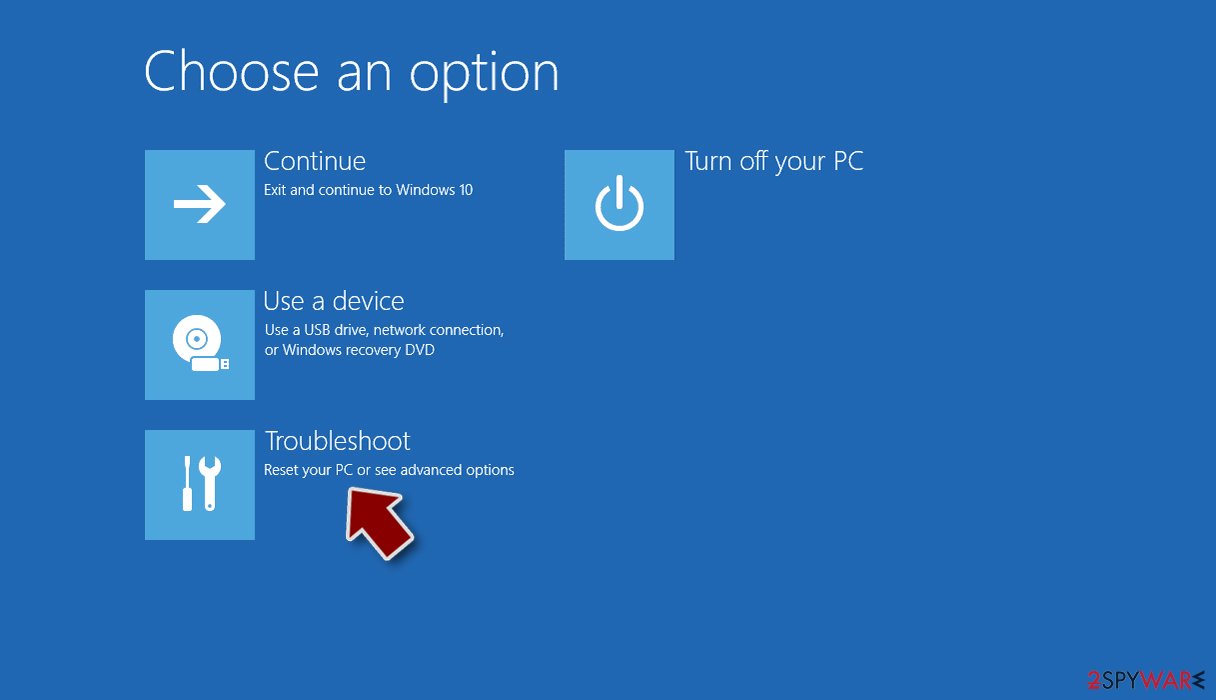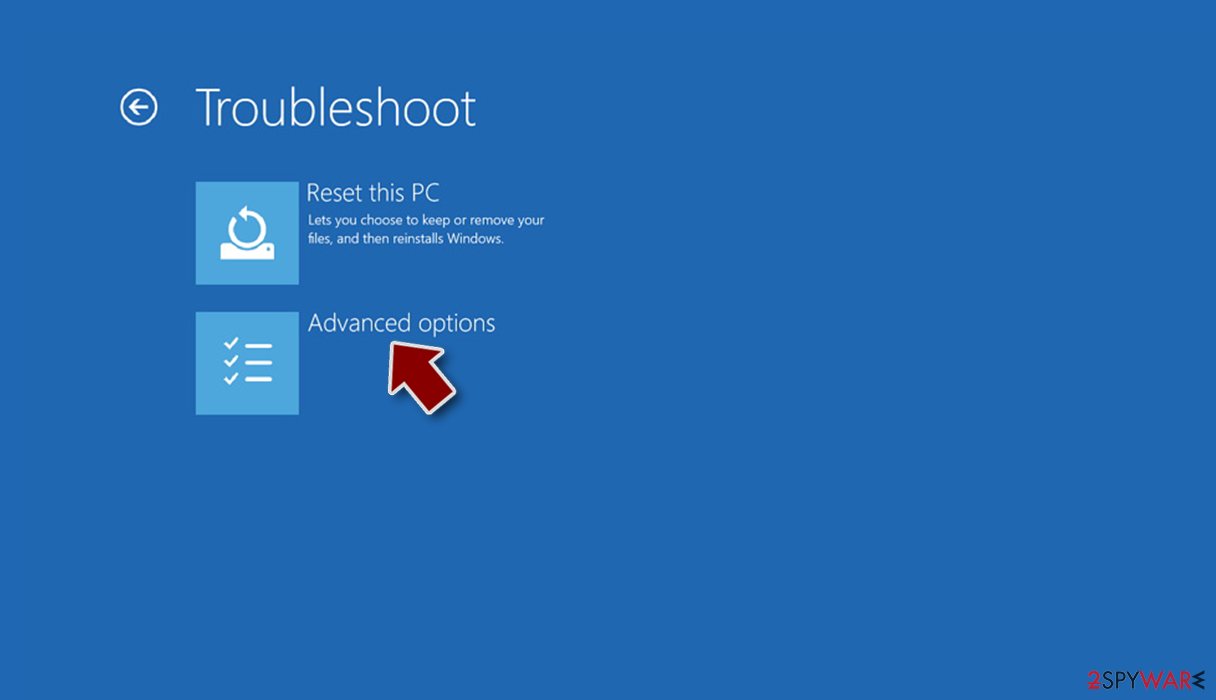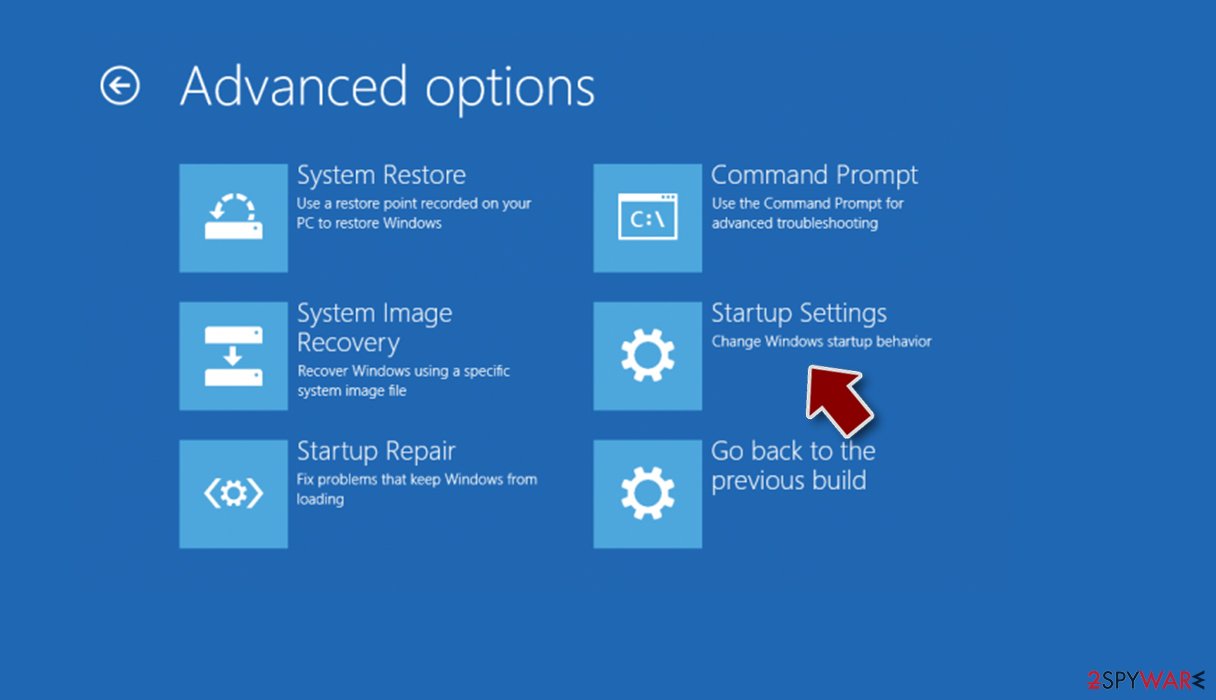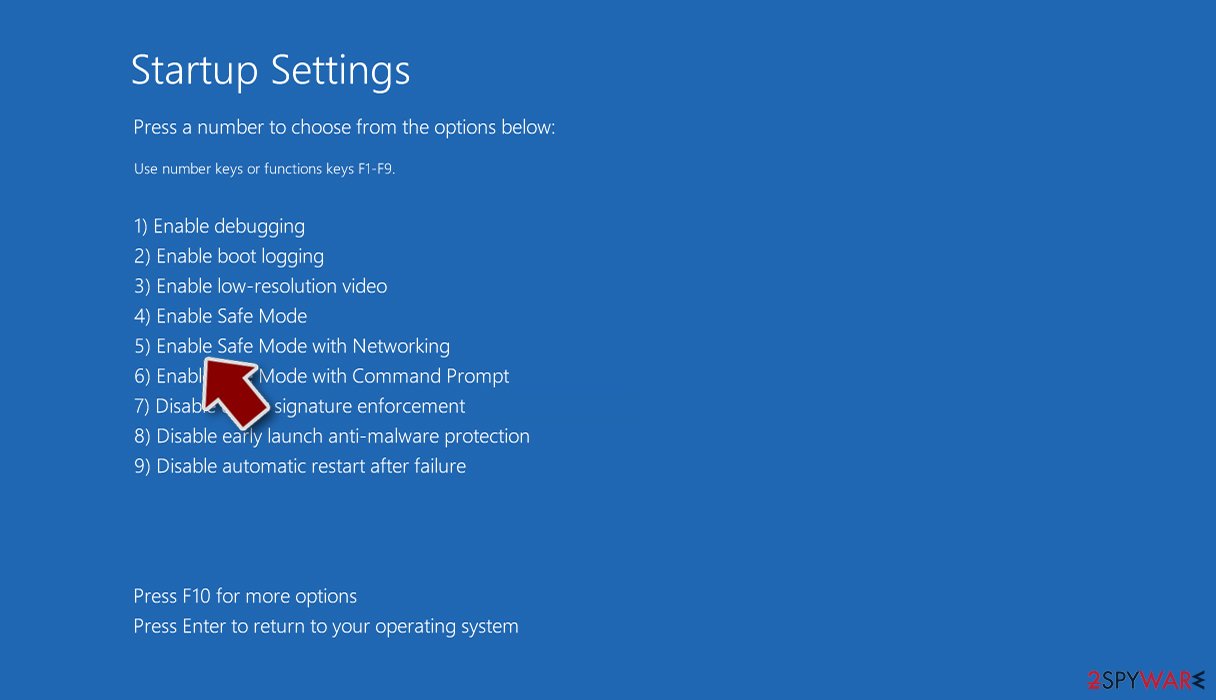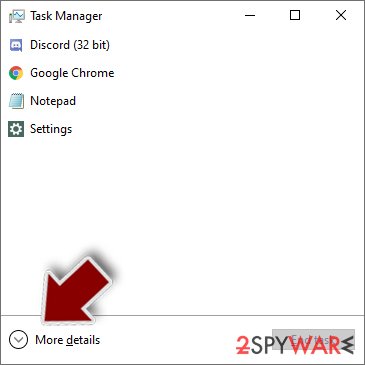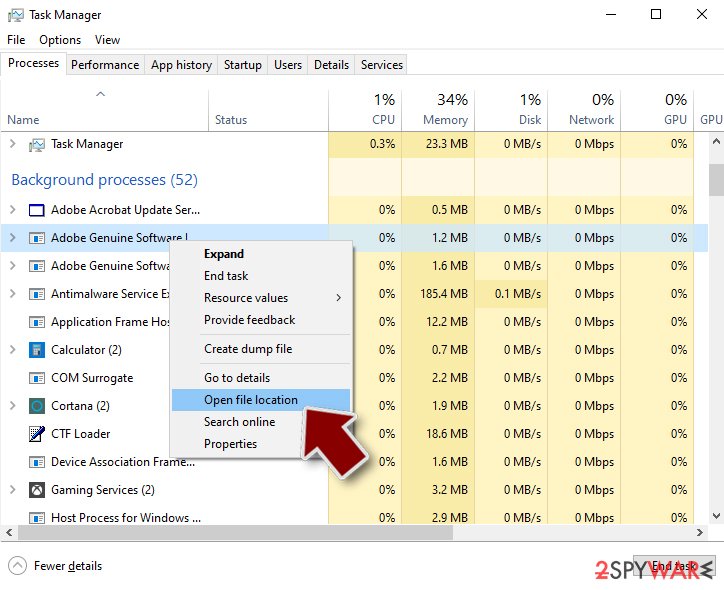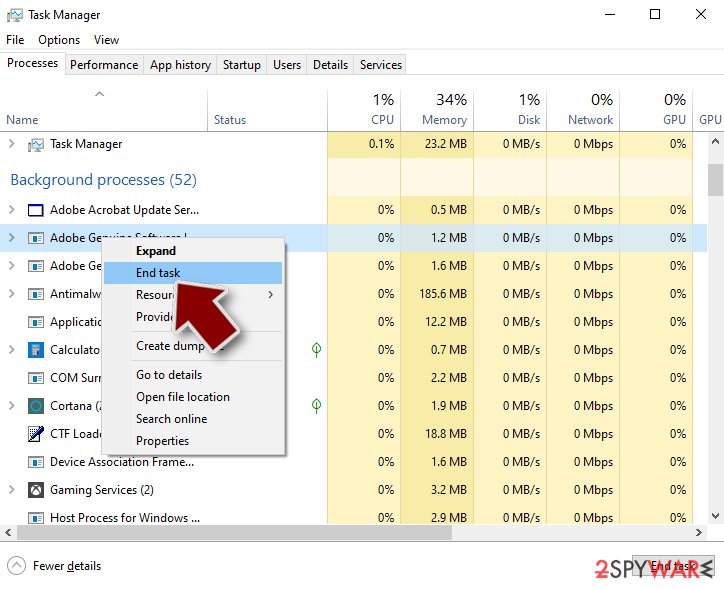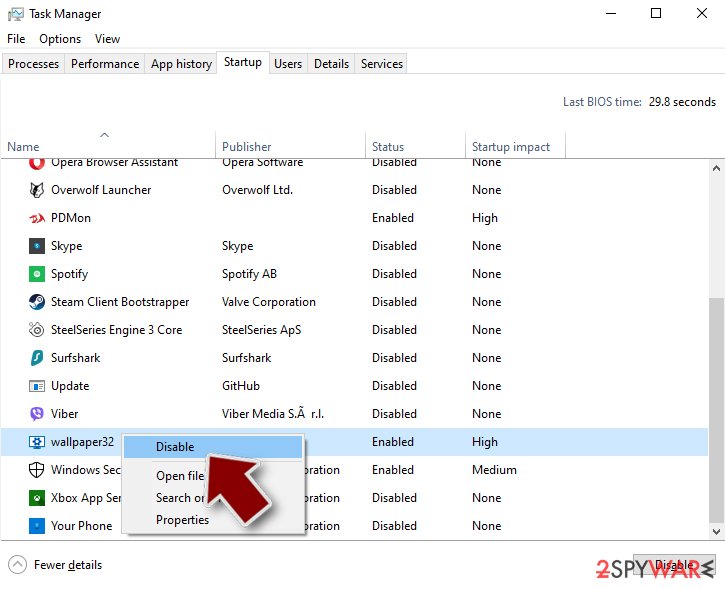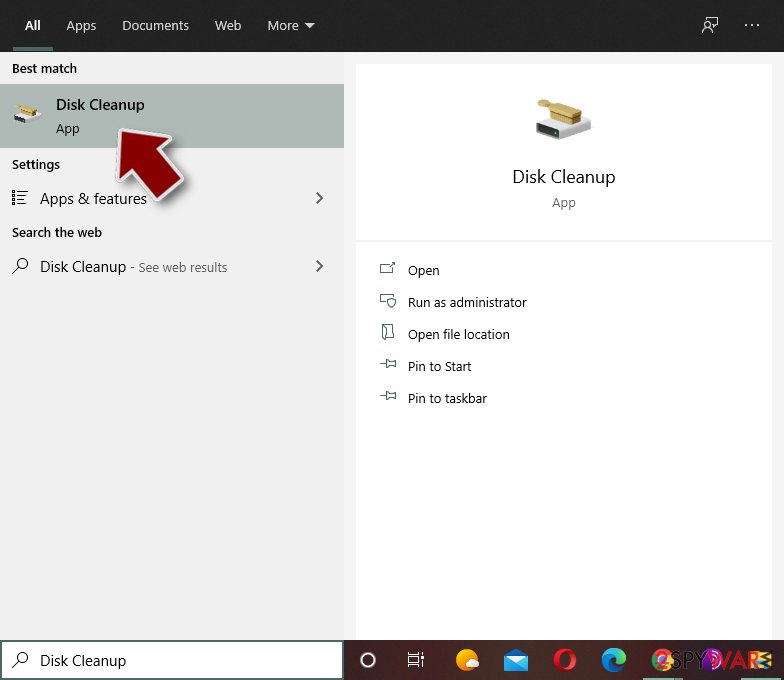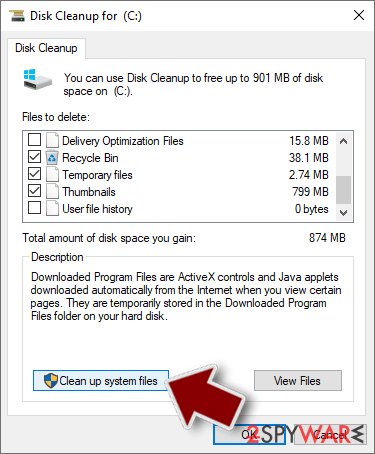WinUpdatesDisabler ransomware / virus (Removal Guide) - Recovery Instructions Included
WinUpdatesDisabler virus Removal Guide
What is WinUpdatesDisabler ransomware virus?
Dangers that underlie WinUpdatesDisabler virus
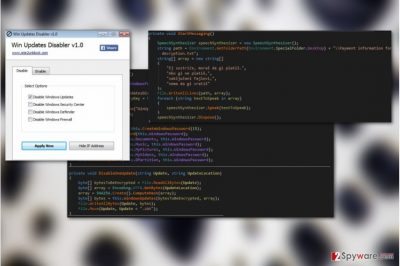
WinUpdatesDisabler virus is a deceptive malware originating from Serbia which pretends to be a helpful Windows 10 Updates disabler. In truth, users who download this tool are unknowingly allowing a full-blown, Hidden Tear-based ransomware [1] to take over their computers.
Once on the system, the parasite immediately downloads its executable WinUpdatesDisabler.exe and launches the system scan, searching for predetermined file types. The found documents, images, archives, game files are then encrypted with a strong AES algorithm [2] and marked with .zbt extensions. The contents of the encrypted document become unintelligible, and the victims lose access to their personal data. Unfortunately, trying to remove WinUpdatesDisabler will not recover the files.
Ransomware are typically designed for one purpose — generating easy money for the virus developers. So, after they are done encrypting files, these parasites will drop a ransom note, explaining how the damaged data can be recovered.

Of course, criminals don’t give away the decryption keys for free. They drop a message on the affected computer, explaining that the victims have to purchase this key for 0.5 Bitcoin, which currently equals around 1230 dollars. Nevertheless, paying the criminals does not guarantee anything. The hackers have no obligations to provide the data recovery key, so they are free to cut all communication with the victims after the ransom transaction is made.
A much safer way than paying the cybercriminals is carrying out the WinUpdatesDisabler removal. Your files may remain encrypted, but at least you will be certain that the parasite will not endanger any new data on your computer. Besides, malware experts often come up with ransomware recovery tools, so it is possible that you will be able to recover your files without having to pay the thousand-dollar ransom.
To eliminate the ransomware from your computer, make sure you use reputable antivirus software such as FortectIntego. Trying to tackle the virus manually is very risky even for the professionals. The malware is unpredictable, so a single mistake while carrying out the removal can result in a total destruction of your data. So be very careful!
Strategies for strengthening computer’s defence and data security
The key to keeping your computer less susceptible to WinUpdatesDisabler and similar viruses is regularly updating the installed software and enabling automatic Windows updates. Theses updates will ensure that your computer is always updated with the latest security patches, diminishing the chances of ransomware exploiting zero-day vulnerabilities to infiltrate your system. It may be difficult or nearly impossible to determine where and when the WinUpdatesDisabler is going to hit; thus we suggest making backup copies of your files to ensure they are safe.
Steps you should take to perform WinUpdatesDisabler removal
To speed up the WinUpdatesDisabler removal procedure, you should use reputable software such as FortectIntego or Malwarebytes. These automatic virus elimination programs will ensure that the malicious components are removed from the computer. Before launching the system scan, check if the program you want to use for the elimination is updated to the latest version.
Later, security software will help you locate trojans, worms and a variety of other malware. It may happen that the malware will try shutting down your antivirus. This way you may not be able to remove WinUpdatesDisabler virus properly. To disable this malicious functionality, you should follow the instructions at the end of the article.
Getting rid of WinUpdatesDisabler virus. Follow these steps
Manual removal using Safe Mode
To disable WinUpdatesDisabler ransomware's antivirus-blocking functionalities, please follow the instructions below.
Important! →
Manual removal guide might be too complicated for regular computer users. It requires advanced IT knowledge to be performed correctly (if vital system files are removed or damaged, it might result in full Windows compromise), and it also might take hours to complete. Therefore, we highly advise using the automatic method provided above instead.
Step 1. Access Safe Mode with Networking
Manual malware removal should be best performed in the Safe Mode environment.
Windows 7 / Vista / XP
- Click Start > Shutdown > Restart > OK.
- When your computer becomes active, start pressing F8 button (if that does not work, try F2, F12, Del, etc. – it all depends on your motherboard model) multiple times until you see the Advanced Boot Options window.
- Select Safe Mode with Networking from the list.

Windows 10 / Windows 8
- Right-click on Start button and select Settings.

- Scroll down to pick Update & Security.

- On the left side of the window, pick Recovery.
- Now scroll down to find Advanced Startup section.
- Click Restart now.

- Select Troubleshoot.

- Go to Advanced options.

- Select Startup Settings.

- Press Restart.
- Now press 5 or click 5) Enable Safe Mode with Networking.

Step 2. Shut down suspicious processes
Windows Task Manager is a useful tool that shows all the processes running in the background. If malware is running a process, you need to shut it down:
- Press Ctrl + Shift + Esc on your keyboard to open Windows Task Manager.
- Click on More details.

- Scroll down to Background processes section, and look for anything suspicious.
- Right-click and select Open file location.

- Go back to the process, right-click and pick End Task.

- Delete the contents of the malicious folder.
Step 3. Check program Startup
- Press Ctrl + Shift + Esc on your keyboard to open Windows Task Manager.
- Go to Startup tab.
- Right-click on the suspicious program and pick Disable.

Step 4. Delete virus files
Malware-related files can be found in various places within your computer. Here are instructions that could help you find them:
- Type in Disk Cleanup in Windows search and press Enter.

- Select the drive you want to clean (C: is your main drive by default and is likely to be the one that has malicious files in).
- Scroll through the Files to delete list and select the following:
Temporary Internet Files
Downloads
Recycle Bin
Temporary files - Pick Clean up system files.

- You can also look for other malicious files hidden in the following folders (type these entries in Windows Search and press Enter):
%AppData%
%LocalAppData%
%ProgramData%
%WinDir%
After you are finished, reboot the PC in normal mode.
Remove WinUpdatesDisabler using System Restore
Another way to decontaminate the ransomware:
-
Step 1: Reboot your computer to Safe Mode with Command Prompt
Windows 7 / Vista / XP- Click Start → Shutdown → Restart → OK.
- When your computer becomes active, start pressing F8 multiple times until you see the Advanced Boot Options window.
-
Select Command Prompt from the list

Windows 10 / Windows 8- Press the Power button at the Windows login screen. Now press and hold Shift, which is on your keyboard, and click Restart..
- Now select Troubleshoot → Advanced options → Startup Settings and finally press Restart.
-
Once your computer becomes active, select Enable Safe Mode with Command Prompt in Startup Settings window.

-
Step 2: Restore your system files and settings
-
Once the Command Prompt window shows up, enter cd restore and click Enter.

-
Now type rstrui.exe and press Enter again..

-
When a new window shows up, click Next and select your restore point that is prior the infiltration of WinUpdatesDisabler. After doing that, click Next.


-
Now click Yes to start system restore.

-
Once the Command Prompt window shows up, enter cd restore and click Enter.
Bonus: Recover your data
Guide which is presented above is supposed to help you remove WinUpdatesDisabler from your computer. To recover your encrypted files, we recommend using a detailed guide prepared by 2-spyware.com security experts.If your files are encrypted by WinUpdatesDisabler, you can use several methods to restore them:
Method of data recovery no.1: Data Recovery Pro:
Employ Data Recovery Pro for your file recovery like explained in the guidelines below:
- Download Data Recovery Pro;
- Follow the steps of Data Recovery Setup and install the program on your computer;
- Launch it and scan your computer for files encrypted by WinUpdatesDisabler ransomware;
- Restore them.
Method of data recovery no.2: Windows Previous Versions feature
Here are Windows Previous Versions feature usage instructions:
- Find an encrypted file you need to restore and right-click on it;
- Select “Properties” and go to “Previous versions” tab;
- Here, check each of available copies of the file in “Folder versions”. You should select the version you want to recover and click “Restore”.
Method of data recovery no.1: Shadow Explorer
Try out using Shadow Explorer for the recovery of your data following the steps below:
- Download Shadow Explorer (http://shadowexplorer.com/);
- Follow a Shadow Explorer Setup Wizard and install this application on your computer;
- Launch the program and go through the drop down menu on the top left corner to select the disk of your encrypted data. Check what folders are there;
- Right-click on the folder you want to restore and select “Export”. You can also select where you want it to be stored.
Finally, you should always think about the protection of crypto-ransomwares. In order to protect your computer from WinUpdatesDisabler and other ransomwares, use a reputable anti-spyware, such as FortectIntego, SpyHunter 5Combo Cleaner or Malwarebytes
How to prevent from getting ransomware
Access your website securely from any location
When you work on the domain, site, blog, or different project that requires constant management, content creation, or coding, you may need to connect to the server and content management service more often. The best solution for creating a tighter network could be a dedicated/fixed IP address.
If you make your IP address static and set to your device, you can connect to the CMS from any location and do not create any additional issues for the server or network manager that needs to monitor connections and activities. VPN software providers like Private Internet Access can help you with such settings and offer the option to control the online reputation and manage projects easily from any part of the world.
Recover files after data-affecting malware attacks
While much of the data can be accidentally deleted due to various reasons, malware is one of the main culprits that can cause loss of pictures, documents, videos, and other important files. More serious malware infections lead to significant data loss when your documents, system files, and images get encrypted. In particular, ransomware is is a type of malware that focuses on such functions, so your files become useless without an ability to access them.
Even though there is little to no possibility to recover after file-locking threats, some applications have features for data recovery in the system. In some cases, Data Recovery Pro can also help to recover at least some portion of your data after data-locking virus infection or general cyber infection.
- ^ Ransomware. Microsoft. Malware Protection Center.
- ^ Advanced Encryption Standard. Wikipedia. The free encyclopedia.
